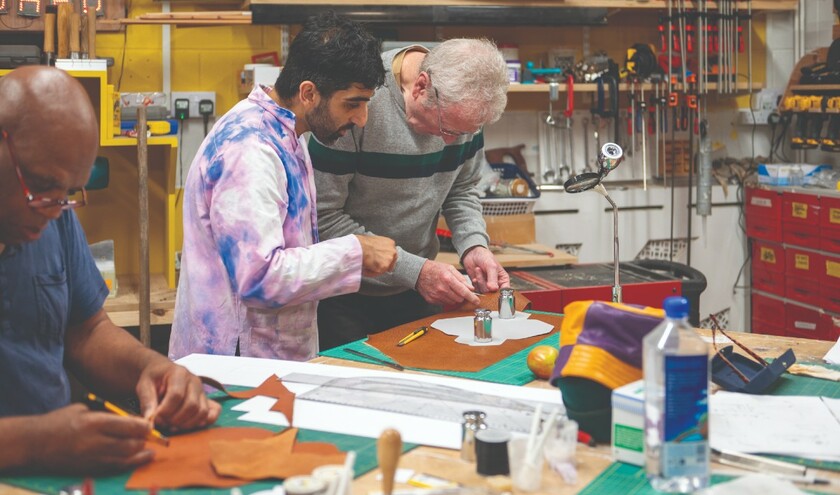There is great strength in sharing a place with someone. Modern life pushes strangers to inhabit the same spaces, which is a wonder and a challenge. Walking the same streets immediately gives people something in common with one another – but often that communal connection needs a helping hand.
Take Gerald, a North Kensington local for over 50 years. His adult children have been priced out of London, his wife has passed away and the streets he knew have completely changed. Hoardings showing people that do not look like him hide developments that he and his neighbours could never afford. He feels disconnected from anyone or anything around him. He feels lonely.
Gerald might be a fictionalised character, but his story speaks to widespread issues.
The loneliness epidemic costs the UK economy nearly £10,000 per person annually, impacting wellbeing, health and productivity. This should be a priority concern for local government and ICBs when considering placemaking.
At ACAVA (Association for Cultural Advancement through Visual Arts), we have witnessed the transformative power of communal spaces when used for the purpose of collaboration and co-creation. For 50 years, we have worked with developers and landowners to convert spaces into affordable creative studios, and again with councils and cultural organisations to invest in community arts initiatives that have real impact in those same spaces. For 30 years, we have worked with the NHS, pioneering the role of art and creativity in non-clinical health and wellbeing settings.
Our model does not stop at managing physical workspaces; it fosters tangible connection and change.
At present, we support over 400 artists across 15 buildings, operating at 98% occupancy. This is a sustainable approach which allows us to also engage in long-term, socially inclusive placemaking projects, like the Maxilla Men's Shed, a free-to-use community makerspace for craft and carpentry projects - designed to improve social isolation in men, but open to all.
Our flagship family programme, Flourish, recently evolved from our studios in North Kensington to include those in Brent. Developed during the Grenfell tragedy, it takes a Trauma Informed approach to building resilience in local families alongside local artists. These projects are usually based in same location as our artist workspaces and provide a direct benefit to the local communities.
Social benefits
Integrating creative activities in placemaking settings offers multiple benefits that align with local authority priorities in urban development and beyond. A 2021 study from Creative Land Trust showed property values in creative clusters outperformed the London average by 4.4% per annum over 10 years. It also concluded that creative workspace as a ground floor commercial use did not add material risk and can increase residential value.
But more importantly for local authorities and ICBs are the benefits that creative spaces can provide as a cost-effective form of social value.
We have recorded a notable decrease in mental health issues among our project participants. Nine in 10 (90%) of participants in our creative gardening project Cultivate Create reported an increase in wellbeing and 66% of our community workshop members reported feeling less anxious after attending. This kind of social prescribing can have a huge positive impact, potentially easing the burden on local health services and assisting healthcare budgets.
The UK Government recognises creative placemaking as vital for long-term community success, including community cohesion. But it can repair, as well as build.
We are the lead arts organisation delivering complex Grenfell Tower fire recovery programmes bringing local people together through creativity to positively impact their health and wellbeing including countering social isolation.
Making it happen
To start integrating this approach, we must begin by identifying underutilised spaces that could be transformed into creative hubs. Consider partnering with organisations like ours to develop these spaces in a way that aligns with the community's needs.
It is also beneficial to incorporate creative space requirements into local development plans, ensuring that creativity becomes an integral part of growth strategies. Consider establishing a cross-departmental taskforce - bring culture and planning to the same table. This group can work on aligning creative initiatives with broader goals in health, housing, and economic development, ensuring a holistic approach to community improvement.
By embracing creative placemaking, local authorities and ICBs can address multiple challenges simultaneously: revitalising underused spaces, fostering community connections and improving mental health outcomes. Decades of experience in this field have proven to ACAVA that partnerships between councils and arts organisations can lead to innovative solutions that build resilient, connected communities.
Investment in creativity today can lead to significant social and economic returns tomorrow, creating vibrant neighbourhoods where people feel a sense of belonging and purpose.
As we look to the future of urban planning and community development, integrating creative spaces and initiatives into the fabric of our towns and cities
may well be the key to tackling the loneliness epidemic and fostering mental wellbeing in a cost-effective, sustainable way.
As one of our Men's Shed participants (perhaps it was Gerald!) said: ‘I sleep better because I've actually done something – you feel a bit depressed and useless. But if you do something and see it coming along, you've helped someone or had a laugh with them, it puts a little bit of a spring in your step.'



